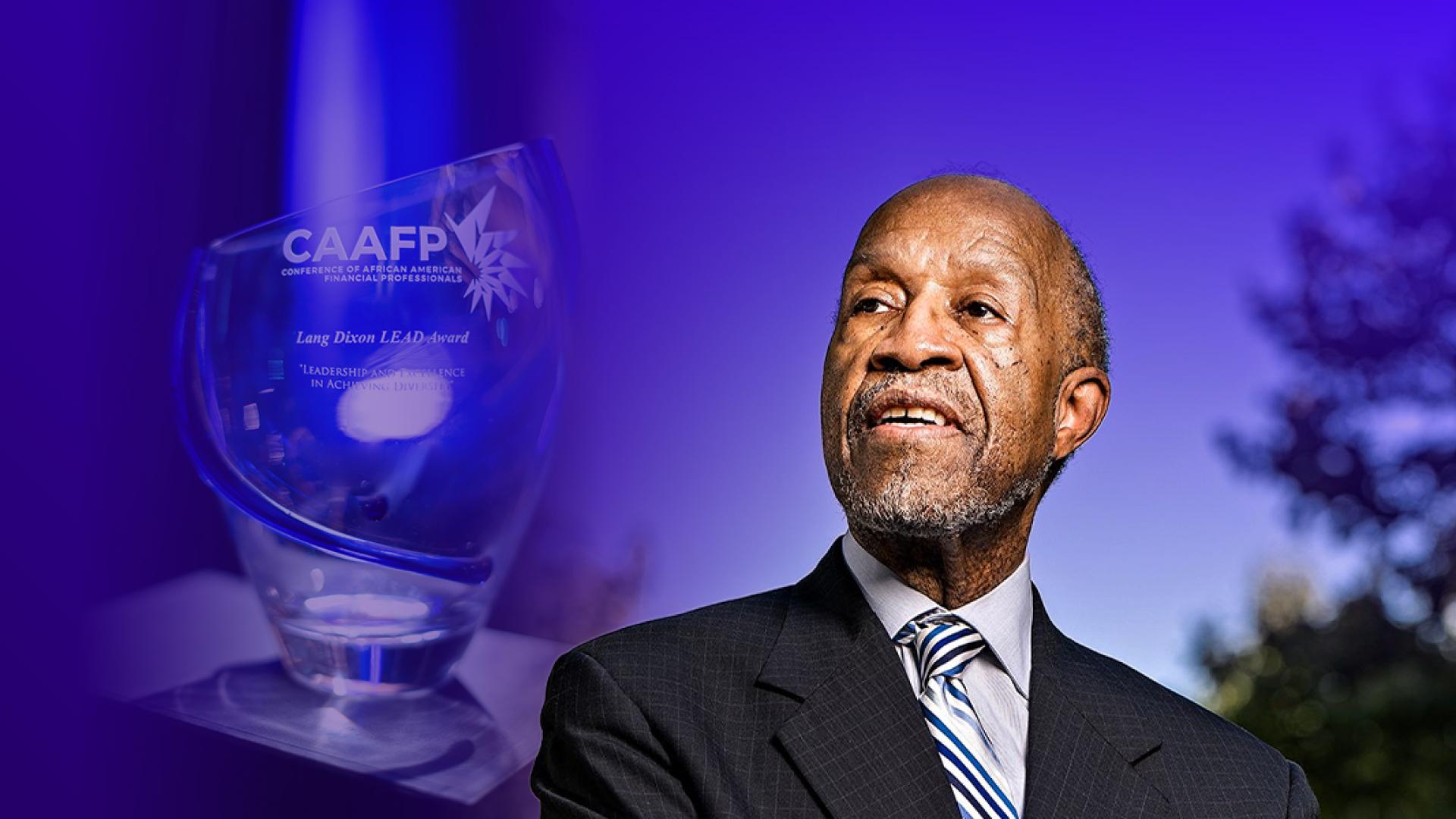About The College News
College News Roundup: July - August 2025
ThinkAdvisor | A Surprisingly Powerful Motivator to Plan for Retirement
July 18, 2025
In this article, Wealth Management Certified Professional® (WMCP®) Program Director Michael Finke, PhD, CFP® explores the theory that client optimism can have a strong impact on a range of financial behaviors and be a powerful motivator for proactive retirement planning.
Golden Isles CEO | Many Americans are Counting on the Wrong Safety Net for Long-Term Care
July 23, 2025
This article about increasing longevity and the financial strain of long-term care cites recent research conducted by The College and the Nationwide Retirement Institute to illustrate how misunderstood and underused long-term care insurance is.
MSN | Asset Management vs. Wealth Management
July 24, 2025
In this article comparing wealth management and asset management, Michael Finke, PhD, CFP® explains the value of working with an advisor who has credentials that indicate knowledge beyond the foundational elements of planning.
NewsBreak | Social Security, Inheritance, and the Future of Retirement: What You Need to Know Now
July 24, 2025
This article summarizes the key retirement planning takeaways from a session at Horizons 2025, featuring insights from College thought leaders Eric Ludwig, PhD, CFP®, Steve Parrish, JD, RICP®, CLU®, ChFC®, AEP®, Jeff Levine, CFP®, CPA/PFS, ChFC®, RICP®, CWS, AIF, BFA™, MSA, and Jamie Hopkins, Esq., LLM, CFP®, ChFC®, CLU®, RICP®.
NBC Montana | Applying for Social Security: How and when to do it
July 28, 2025
Wade Pfau, PhD, CFA, RICP® offers advice in this article detailing all the options and steps to take when applying for social security.
ThinkAdvisor | Safe Money Matters with Brad Pistole
July 28, 2025
In this podcast episode, Brad Pistole, RICP®, TPCP®, CFF®, CAS®, IRMAACP™ talks tax management, continuing education, the evolution of the annuity sales process, and more.
Financial Planning | Keep retirees focused on the long view when markets falter
July 30, 2025
In this article, Eric Ludwig, PhD, CFP® examines the benefits of focusing on long-term planning rather than trying to predict the markets, especially when working with retirees amid uncertain markets.
The Adviser Magazine | American College, RISR team up on business succession clients
July 31, 2025
This article dives into The College’s recent partnership with RISR, including the value of specialized knowledge and how RISR will help advisors improve their services for business owners.
EUROPE SAYS | How Much Makes Someone Wealthy, and Why It Can Pay to Delay Social Security
August 2, 2025
In this podcast episode, Michael Finke, PhD, CFP® provides insights on whether or not individuals should consider claiming social security early.
Star Tribune | How to create a reliable paycheck after retirement
August 5, 2025
Michael Finke, PhD, CFP® provides his recommendation for those considering claiming social security early in this article about increasing your retirement income.
MSN | What Is a Retirement Advisor?
August 5, 2025
In this article about what defines a retirement advisor, Eric Ludwig, PhD, CFP® explains that having specialized education, like the knowledge found in the Retirement Income Certified Professional® (RICP®) Program, is key to being considered a retirement advisor.
Financial Advisor | Give Now, Advisors Say, Before New Law Restricts Charitable Deductions Next Year
August 8, 2025
In this article about the impacts on charitable giving caused by the One Big, Beautiful Bill Act, the American College Center for Philanthropy and Social Impact Managing Director Paul M. Caspersen, MS, CFP®, AEP® weighs in.
AInvest | Aging Populations and Financial Literacy Gaps: Implications for Retirement and Longevity-Linked Markets
August 10, 2025
This article about the financial literacy gap among older Americans cites findings from The College’s 2023 Retirement Income Literacy Study.
Kiplinger | Financial Planner vs Investment Manager: Who's the Better Value for You?
August 11, 2025
This article by Chief Marketing and Strategy Officer Jared Trexler explores key findings from the Advising Through Uncertainty Study, which indicate that financial planners are better equipped to navigate market uncertainty for their clients than investment managers.
Bankrate | What to do if you lose your 401(k) employer match
August 11, 2025
In this article about the steps to take in the event of a lost 401(k) match, Steve Parrish, JD, RICP®, CLU®, ChFC®, AEP® shares advice based on various potential financial situations.
MSN | Oh No -- You Might Live to 100! That Could Be Great, but How Will You Not Run Out of Money?
August 17, 2025
The College and the Nationwide Retirement Institute’s recent research on retirement longevity is mentioned in this article about the potential impacts of increasing life expectancy.
MSN | Baby Boomers vs Gen X: How They Approach Retirement Differently
August 19, 2025
In this article about the different retirement planning approaches of Generation X and Baby Boomers, Steve Parrish, JD, RICP®, CLU®, ChFC®, AEP® examines how Generation X is more willing to do their own research.
Barron's | ‘Good’ Mistakes: What Financial Advisors Learned From Their Missteps
August 20, 2025
In this article about the lessons learned from financial advisors’ mistakes, Eric Ludwig, PhD, CFP® speaks on the importance of finding a process you trust and working with clients who trust it, too.
Author
Subscribe to Newsletter
Related Posts
INDUSTRY EVENT: Ed Slott’s Elite IRA Advisor Group Workshop

PhD, CFEI®
Author
Subscribe to Newsletter
Related Posts
Alumni & Volunteer Breakfast
About The College Press
College to Host 11th Annual Military Summit

KING OF PRUSSIA, Pa. — August 27, 2025 - The American College of Financial Services will host its 11th annual Military Summit in Philadelphia on Sept. 18, 2025, coinciding with the 13th anniversary of the founding of the American College Center for Military and Veterans Affairs.
The event, hosted by the Center for Military and Veterans Affairs, will bring together members of the military community, financial professionals and supporters to honor veteran scholars, celebrate donors and partners, and provide professional development opportunities.
“We strive to create an environment where service members, veterans, and their spouses feel seen, supported, and equipped for long-term success,” said Phil Easton, retired CMSgt, USAF, managing director of the Center. “The Military Summit is about more than recognition; it's about offering meaningful access to education, career advancement, and a community that understands and champions the military journey.”
A highlight of the Military Summit will be the presentation of the Soldier-Citizen Award to retired Navy Vice Adm. James Zortman during a formal dinner at the National Constitution Center. A U.S. Naval Academy graduate, Zortman served 34 years in the Navy, commanding at the highest levels and earning numerous top honors. Since retiring in 2007, he has led in the private sector and currently serves as chairman of the board for USAA, supporting the financial well-being of the military community.
“I’m deeply honored to be selected for the Soldier-Citizen Award,” Zortman said. “Partnering with The American College of Financial Services and its sponsors reflects our shared dedication to those who have served. I’m eager to take part in an event that highlights the impactful work The Center is doing for the military community and the academic success of military affiliated scholars.”
The summit underscores The College’s commitment to the Center’s mission of empowering those who serve, supporting military members and their spouses through career transitions via educational and employment opportunities in the financial services sector. The event will include:
- An invite-only networking lounge for military resource groups (MRGs) and scholars.
- Dynamic discussions and workshops focused on leadership and key topics in the financial services industry that will qualify for American College Professional Recertification CE credit. Highlights include the Maury Stewart Lecture Series, featuring a marquee speaker session with Rebecca Patterson, educational workshops such as “Surprising Optimism in Retirement” with Michael Finke, PhD, CFP®, and a fireside chat on “Lessons in Leadership” with Zortman.
- The scholarship fund dinner at the National Constitution Center, honoring Zortman as the 11th annual Soldier-Citizen Award recipient and celebrating the veteran scholars and supporters who advance The College’s mission.
Join us in Philadelphia to celebrate veterans, learn from experts, and network with professionals committed to supporting the military community. For more information, visit https://events.theamericancollege.edu/military-summit-2025.
For more information, contact:
Jared Trexler
610-526-1268
jared.trexler@theamericancollege.edu
Sarah Tremallo
908-967-0381
Stremallo@jconnelly.com
About The American College of Financial Services
The American College of Financial Services is the nation’s largest nonprofit and accredited educational institution devoted to financial services professionals. Nearly one in five advisors or agents is an alum of The College. The College offers a learning platform that includes professional designation, certification, and degree programs and encompasses early-career foundational knowledge as well as deep, specialized education in tax, retirement income, philanthropy, risk management, and more with the highest-quality combination of rigor and relevance. The College’s faculty represents the foremost thought leaders in the financial services industry. Its educational programs, research, and events offer professionals the opportunity to accelerate through knowledge, grow through connections, and uplift through community.
Visit TheAmericanCollege.edu to discover all the ways you can expand your opportunities with The College.
Author
Subscribe to Newsletter
Related Posts
INDUSTRY EVENT: NAEPC Advanced Estate Planning Strategies Conference
Author
Subscribe to Newsletter
Related Posts
INDUSTRY EVENT: AAAA V.I.S.I.O.N. Conference

PhD, CFP®, MSFP
Retirement Planning Podcasts
Working With Clients on Retirement Income Strategies
In this episode of the Shares podcast, join chief marketing and strategy officer, Jared Trexler and FinServe Network ambassadors Terrell Dinkins, Chartered Financial Consultant® (ChFC®), Retirement Income Certified Professional® (RICP®) and Angie Ribuffo, CFP®, RICP®, ChFC®, CDFA®, CLTC®, WMCP® from the Conference of African American Financial Professionals (CAAFP) as they discuss how advisors can help clients open up about their goals for retirement and what they can do to help them get there. Our guests discuss everything from increased longevity to the criticality of communication, and more.
Terrell Dinkins, ChFC®, RICP®, is the president and founder of OBN Wealth Advisors, an independent RIA firm that specializes in wealth-building strategies and comprehensive financial planning for women and small business owners. With over a decade of experience as an investment advisor, Dinkins expertly crafts financial roadmaps that help her clients thrive now and in the future.
Dinkins’ professional expertise is backed by an impressive academic background, including a Bachelor of Business Administration in finance from Georgia Southern University, a Master of Business Administration from Mercer University, Stetson School of Business and Economics, and completion of the executive program in financial planning from the University of Georgia. Her professional credentials include the prestigious ChFC® and RICP® designations from The American College of Financial Services
Angie Ribuffo, CFP®, RICP®, ChFC®, CDFA®, CLTC®, WMCP®, became an independent financial advisor and in 2019, opened Raion Financial Strategies. Raion is a comprehensive financial planning firm focused on preparing clients to meet their self-identified goals.
Ribuffo has written for USA Today, Women in Finance, and the Certified Long Term Care Digest. She is a recognized speaker and in October 2022, was selected as the Women in Insurance and Financial Services (WIFS) Woman of the Year. Ribuffo was also recognized in May 2022 by InvestmentNews’ Diversity, Equality and Inclusion award as a See It, Be It Role model for her work with women and African American financial professionals. She was also a 2018 Women to Watch. She is a member of the Anchorage Athena Society.
From 2017-2018 she was the national president of WIFS and was the 2019 immediate past president. She also was the 2012 WIFS ANGEL award recipient for leadership and mentoring. From 2012-2022, she has been recognized as a WIFS Circle of Excellence recipient. Ribuffo is a member of the CFP Women’s Initiative Council, and active in The Financial Planning Association and the Anchorage Chamber of Commerce, Military Advisory Committee.
Any views or opinions expressed in this podcast are the hosts’ and guests' own and do not necessarily represent those of The American College of Financial Services.
More From The College
- See how you can assist clients in achieving their retirement goals with the Retirement Income Certified Professional® designation.
- Get more insights on longevity.
- Meet the FinServe Network.
About The College Insights
2025 lang dixon award winner

Since 2018, The American College of Financial Services has taken time during the Conference of African American Financial Professionals (CAAFP) to present the Lang Dixon LEAD award to individuals who have significantly impacted the profession of financial services. This year’s recipient, , MBA, CFP®, has earned this recognition over a lifetime of achievement that includes becoming the first African American to earn the CFP® certification in 1978, founding the Association of African American Financial Advisors, serving as a lecturer at Howard University, and more.
Though CAAFP focuses on the strength of the financial services community and emphasizes the importance of collective impact, it is also important to recognize the accomplishments of leaders such as Davis for the impression they have left on the profession. Without Davis blazing the trail for African American financial professionals to come, the financial services industry may not look the same as it does today.
More From The College
- Get key insights for uncertainty with our Advising Through Uncertainty Study
- Explore the American College Center for Economic Empowerment and Equality® mission
- Check out more from CAAFP